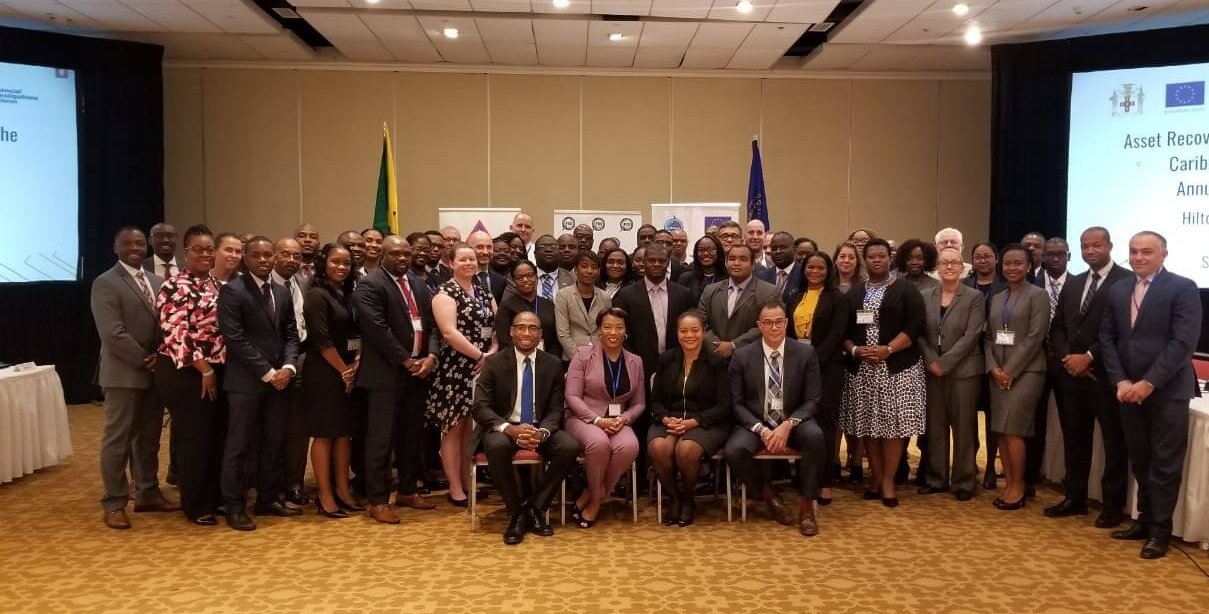National Security Officer Says Money Laundering Is Clear And Present Danger
Chief Technical Director, Financial Investigations, Security Policy and Risk Management Affairs, Ministry of National Security, Rohan Richards, says money laundering is a clear and present danger to the country.
Mr. Richards, who was speaking at the Asset Recovery Inter-Agency Network of the Caribbean (ARIN-CARIB) Annual General Meeting at the Hilton Rose Hall Resort, St. James, on September 19, said money laundering represents an estimated 2.8 per cent of Jamaica’s gross domestic product (GDP).
He emphasised that the problem is such that Jamaica’s National Security Policy ranks “facilitators who launder the proceeds of crime” as a Tier One threat, which requires an active and immediate response.
“We all know that these funds, which are oftentimes proceeds from illicit activities such as trafficking in persons, trafficking in firearms, cybercrime and terrorism, enable the growth of organised criminal networks, which often operate with impunity and continuously erode the fabric of citizen security and good governance,” Mr. Richards said.
“It is true that when these funds are introduced into the legitimate financial system, they have the potential to compromise the integrity of the financial sector, to weaken the role of the financial sector in economic growth and increase the risk of macroeconomic instability,” he added.
Mr. Richards said that all is not lost, as a CARICOM Regional Security Strategy “speaks to the fact” that an aggressive and successful programme of asset forfeiture could cripple organised crime in the region.
“As the Strategy reminds us, these assets and parts of the funds seized should be made available to law-enforcement and crime-prevention initiatives. In assessing the impact of money laundering, the United Nations Office on Drugs and Crime estimates that the amount of money laundered annually ranges between two and five per cent of global GDP or between US$800 billion and US$2 trillion,” he noted.
Mr. Richards pointed out that money is a part of all organised crime, and CARICOM states are particularly susceptible to money laundering, due to the prevalence of illicit drugs and the firearms trade, which require complicity from the facilitators of crime.
“Countries of the region, therefore, have a responsibility to develop their capacity to manage the information and utilise intelligence in order to effectively manage their anti-money laundering (AML) risks,” he said.
Mr. Richards said that in a bid to improve citizen security and to protect the integrity of the economy, it is important that the Government of Jamaica ensures that a robust framework exists to identify and prevent criminal elements from utilising the legitimate financial system for their own benefit.
He added that it is against this background that the Ministry of National Security is currently amending the Proceeds of Crime Act (and Regulations) in order to strengthen the Anti-Money Laundering and Countering the Financing of Terrorism (AML/CFT) regime.
This, Mr. Richards said, will complement amendments to the Terrorism Prevention Act geared towards achieving the same objectives.
Some 25 member countries are represented at the two-day ARIN-CARIB conference. Several presentations will be made focusing on: Gold Smuggling Typologies; Best Practices Seizure of Cryptocurrencies; and Unexplained Wealth Orders.
The ARIN networks are globally recognised as a judicial and law-enforcement tool used in targeting organised crime players, with particular focus on financial and assets deprivation. There are eight ARIN networks currently in operation around the world.
Source: JIS




